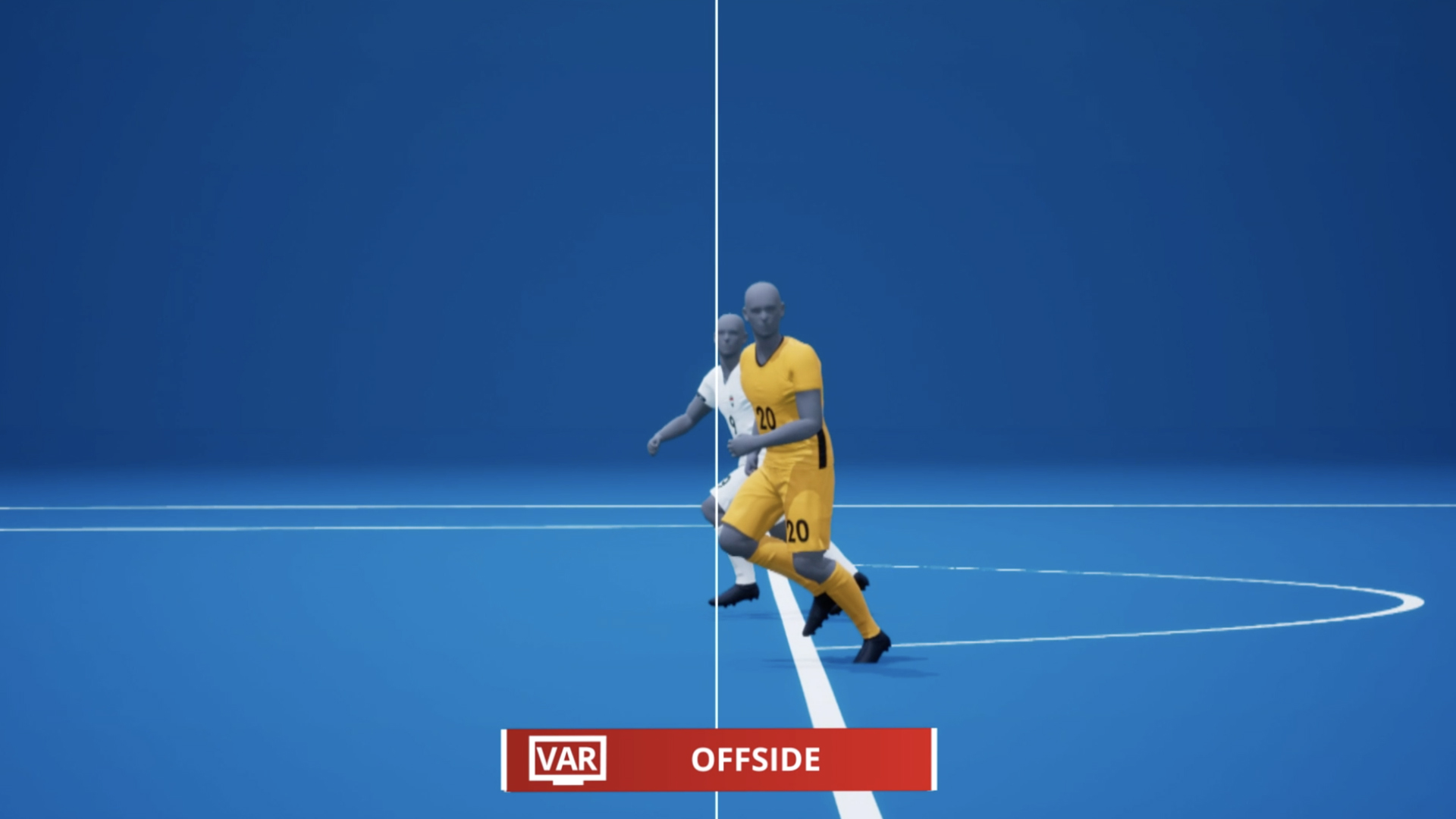

Semi-automated offside technology is to be used for the first time at the FIFA World Cup 2022. The referee and linesmen will now be assisted by a huge number of cameras, and advanced tracking technology that can detect if even the slightest slither of an attacking player is in front of the last defender and therefore OFFSIDE.
As you can see from the short gif clip below, and the somewhat longer video at the bottom of this story, this new development of VAR (Video Assistant Referee) works in a very similar way to the existing tech, but now the footie AI detects offsides on its own, and alerts the video officials. Quite what the linesmen think about this, I don't know. They might as well just put their feet up, rather than running up and down with flags, looking like short-sighted idiots.
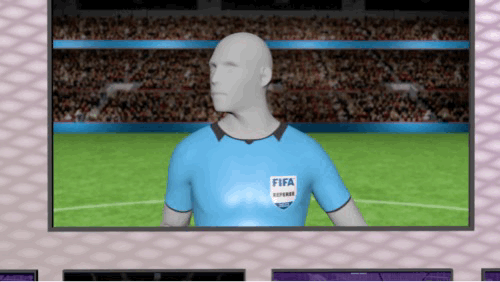
VAR hasn't been universally welcomed by soccer lovers, to put it mildly. However, much of the criticism has related to how and when the humans on the pitch choose to use it. With this development, a computer does the work for them. Could this be the beginning of the end for human linesmen, or even the man that fans lovingly call, 'the banker in the black'? We shall see…
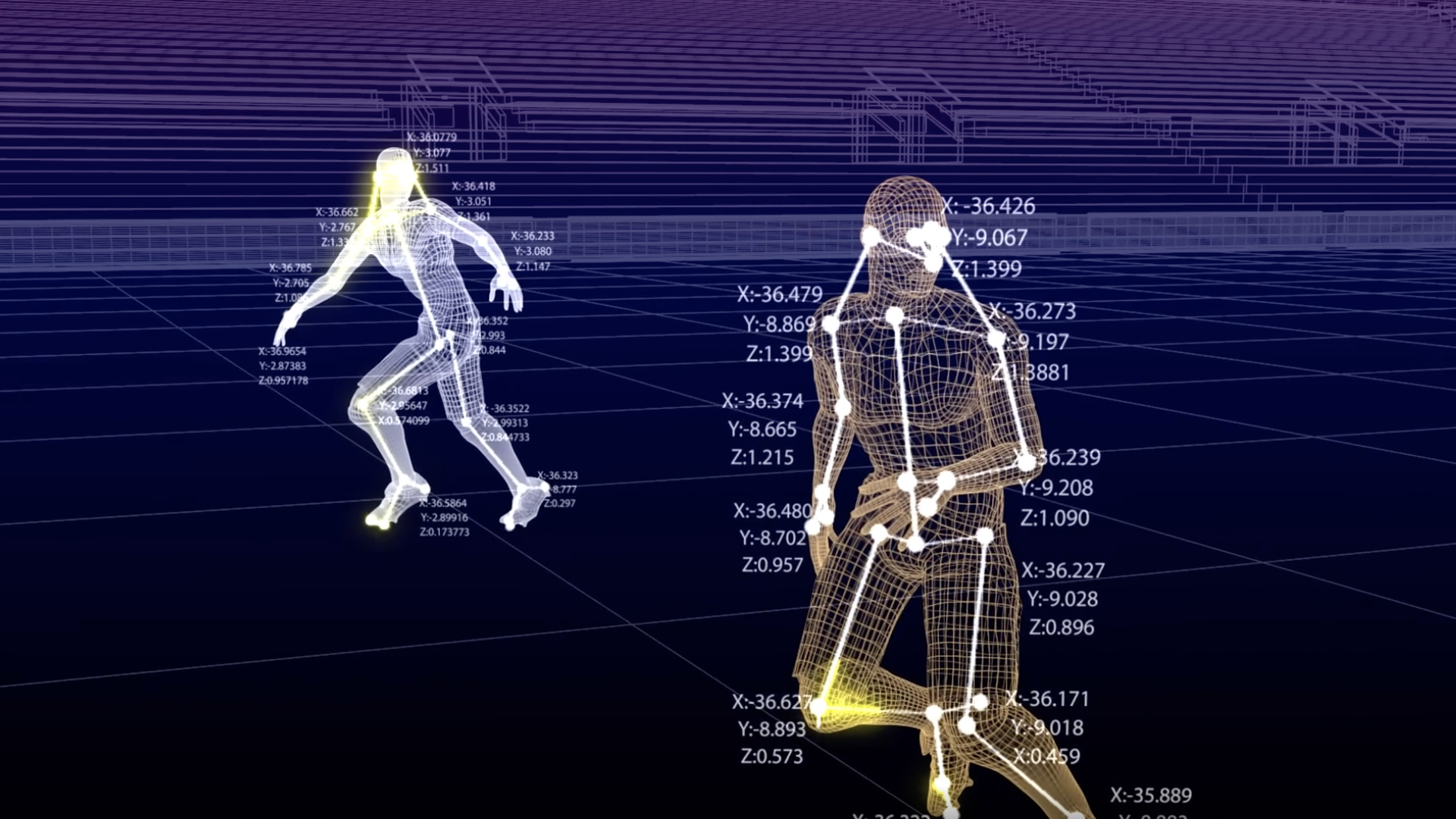
The VAR tech tracks multiple points of the body
FIFA says: 'The new technology uses 12 dedicated tracking cameras mounted underneath the roof of the stadium to track the ball and up to 29 data points of each individual player, 50 times per second, calculating their exact position on the pitch. The 29 collected data points include all limbs and extremities that are relevant for making offside calls.'
As you no doubt know, the arms and hands are excluded from calculating whether a player is offside.
It's not just the players being tracked, however. A sensor inside Adidas' official World Cup match ball also sends data to the video ops room 500 times per second, 'allowing a very precise detection of the kick point.'
AI constantly analyses all these data points, and sends an alert to the officials in the VAR room when an offside is detected. Hopefully this alert is 'OFFSIDE DETECTED! OFFSIDE DETECTED! HALT PLAY!' in a Dalek voice.
Sign up to the T3 newsletter for smarter living straight to your inbox
Get all the latest news, reviews, deals and buying guides on gorgeous tech, home and active products from the T3 experts

Ref! Offside! Get some new glasses!
The video guys then make sure the computer hasn't messed up. This part of the process is where there is potential for things to get controversial, I suspect. However, FIFA says it will happen 'within a few seconds', so there will hopefully be no more of that agonising and deeply annoying waiting around for offside decisions to be called.
The video officials then notify the hapless buffoon on the pitch, via his earpiece. He then signals that he and his linesmen have yet again missed a blatant offside. After that, everyone gets to see the cool animation that the VAR system has generated, on the stadium's big screen and on the not-quite-so-big screen in your home or at the local sports bar.
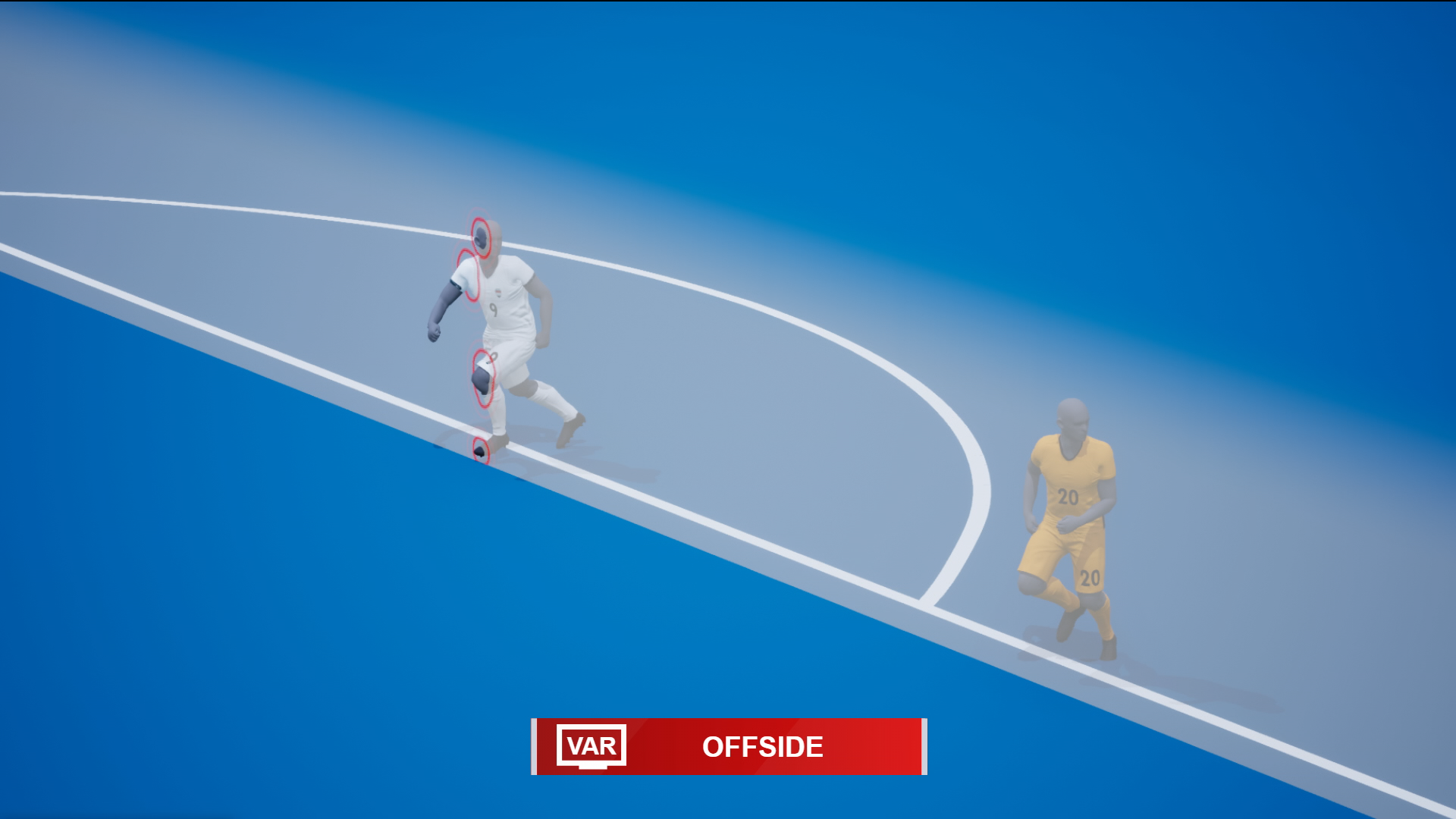
Though I say 'cool animation', this bit actually looks slightly grotesque
This system has already been trialled at events including the FIFA Arab Cup and FIFA Club World Cup, so hopefully things will run smoothly. The goal is to then fine-tune the system even further, 'to ensure that the new technology can be used in the world of football.' Although according to FIFA, it already has, so I'm not sure what that's about.
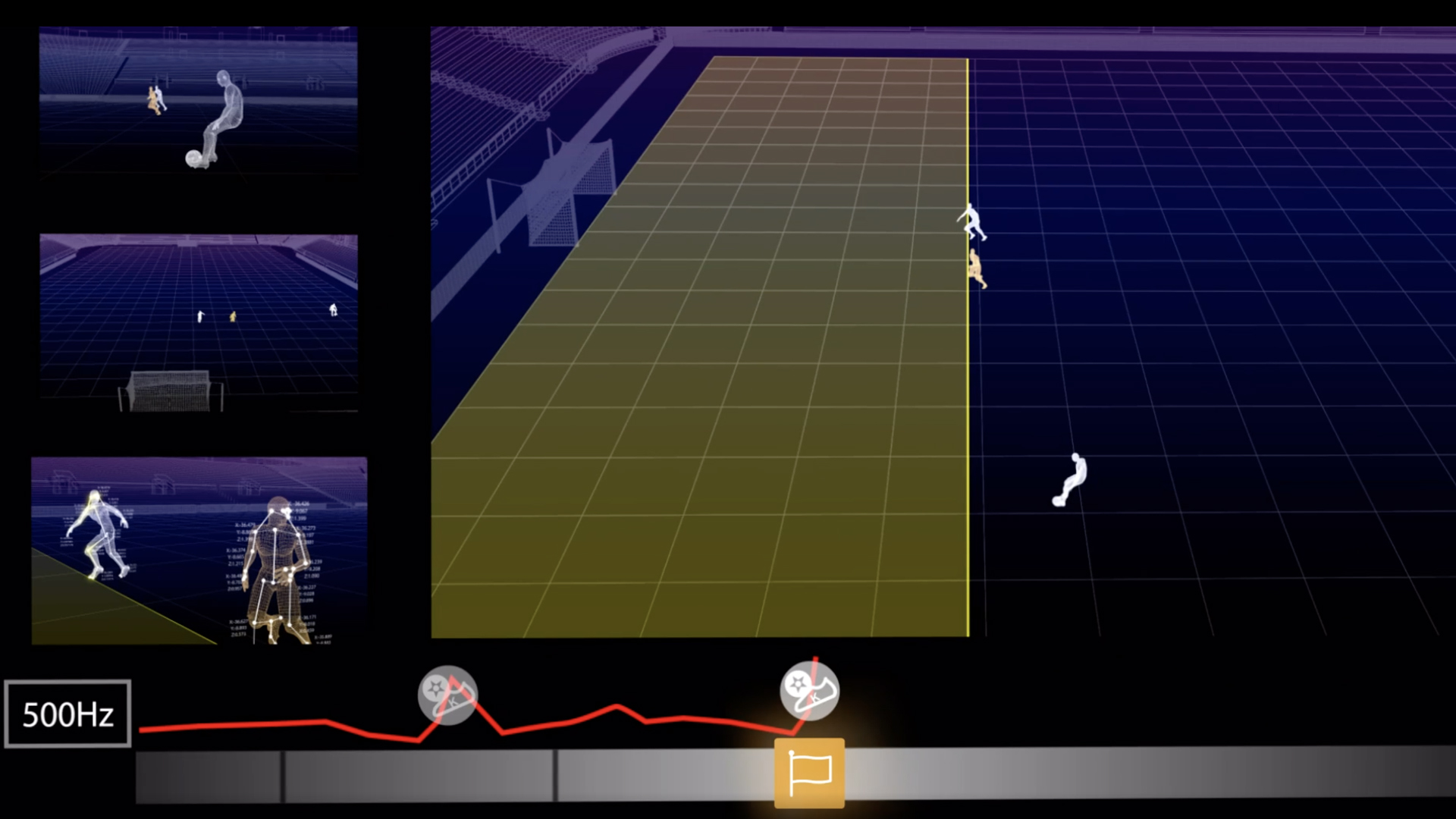
What the VAR room officials will see
Amiable, bulging-eyed slaphead super-ref Pierluigi Collina is now chairman of the FIFA Referees Committee. He reached for his pocket and pulled out this statement: “VAR has already had a very positive impact on football and we can see that the number of major mistakes has already been dramatically reduced. We expect that semi-automated offside technology can take us a step further. We are aware that sometimes the process to check a possible offside takes too long, especially when the offside incident is very tight. This is where semi-automated offside technology comes in – to offer faster and more accurate decisions.”
If Offside VAR is okay with Pierluigi, it's fine by us. GOOOOOOOOAAAAAAAAL! Oh… Not a goal; VAR confirms it was offside.
- Further reading: a complete guide to the offside rule (from the FA)
Duncan is the former lifestyle editor of T3 and has been writing about tech for almost 15 years. He has covered everything from smartphones to headphones, TV to AC and air fryers to the movies of James Bond and obscure anime. His current brief is everything to do with the home and kitchen, which is good because he is an excellent cook, if he says so himself. He also covers cycling and ebikes – like over-using italics, this is another passion of his. In his long and varied lifestyle-tech career he is one of the few people to have been a fitness editor despite being unfit and a cars editor for not one but two websites, despite being unable to drive. He also has about 400 vacuum cleaners, and is possibly the UK's leading expert on cordless vacuum cleaners, despite being decidedly messy. A cricket fan for over 30 years, he also recently become T3's cricket editor, writing about how to stream obscure T20 tournaments, and turning out some typically no-nonsense opinions on the world's top teams and players.
Before T3, Duncan was a music and film reviewer, worked for a magazine about gambling that employed a surprisingly large number of convicted criminals, and then a magazine called Bizarre that was essentially like a cross between Reddit and DeviantArt, before the invention of the internet. There was also a lengthy period where he essentially wrote all of T3 magazine every month for about 3 years.
A broadcaster, raconteur and public speaker, Duncan used to be on telly loads, but an unfortunate incident put a stop to that, so he now largely contents himself with telling people, "I used to be on the TV, you know."
-
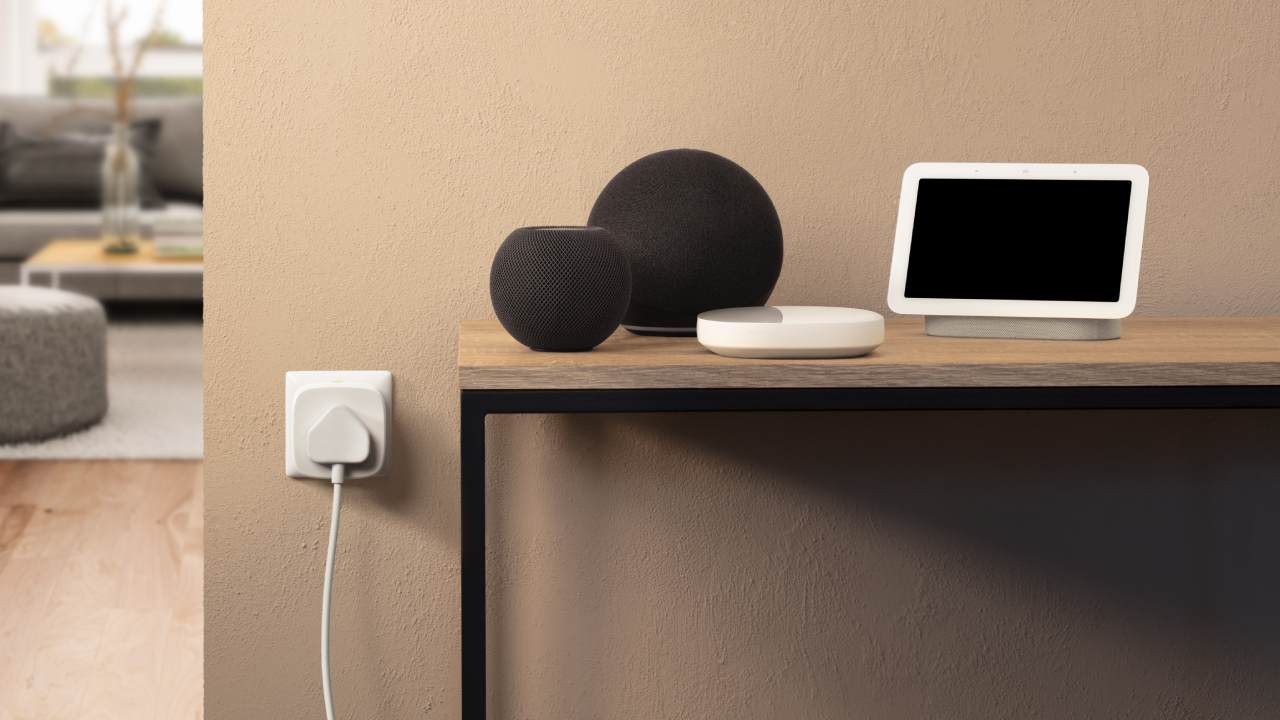 Eve’s smart plug gets impressive Matter upgrades – but I’m most excited about the app
Eve’s smart plug gets impressive Matter upgrades – but I’m most excited about the appEve Energy adds Matter support and an updated Android app
By Bethan Girdler-Maslen
-
 Audio-Technica’s latest luxury turntable will light up your life, and your records
Audio-Technica’s latest luxury turntable will light up your life, and your recordsThis strictly limited turntable is a feast for the eyes as well as the ears
By Carrie Marshall